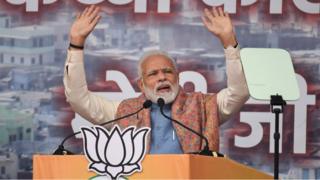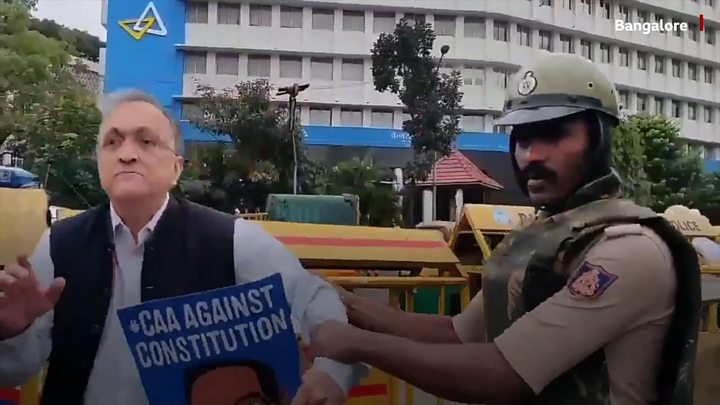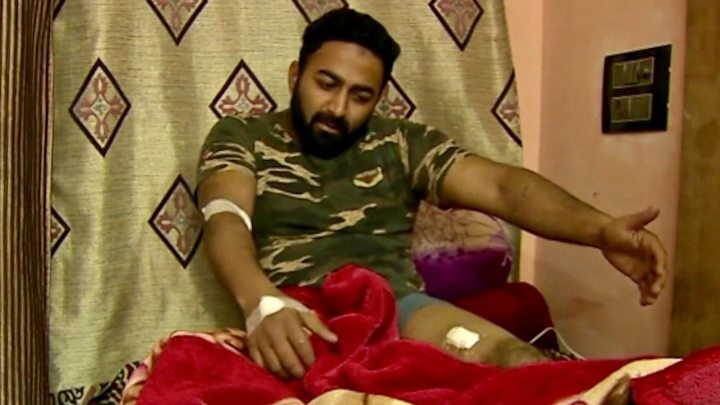India PM defends protest-hit citizenship bill
Indian Prime Minister Narendra Modi has defended the government’s new citizenship law, despite the major ongoing protests against it.
“We passed this bill to help the persecuted,” he said at a rally in Delhi. “We need to respect India’s MPs and its parliament”.
More than 20 people have died in ten days of clashes sparked by the bill, which critics see as anti-Muslim.
Protesters have continued to take to the streets in spite of police bans.
Several thousand people have also been detained and internet services have been suspended as the authorities battle to restore order.
The bill offers amnesty to non-Muslim illegal immigrants from three neighbouring countries.
Mr Modi defended the legislation at a rally in the capital at the start of his Hindu nationalist Bharatiya Janata Party’s (BJP) campaign for state elections there. The prime minister:
What is the controversial law?
Critics fear the new law – known as the Citizenship Amendment Act (CAA) – undermines India’s secular constitution.
Passed earlier this month, it offers amnesty to non-Muslim illegal immigrants from Pakistan, Bangladesh and Afghanistan.
The federal government says the law will protect religious minorities fleeing persecution – but the move has drawn criticism from opposition parties and international rights groups.
It is also controversial because it follows a government plan to publish a nationwide register of citizens that it says will identify illegal immigrants – namely, anyone who doesn’t have the documents to prove that their ancestors lived in India.
A National Register of Citizens (NRC) – published in the north-eastern state of Assam – saw 1.9 million people effectively made stateless.
The NRC and the Citizenship Amendment Act are closely linked as the latter will protect non-Muslims who are excluded from the register and face the threat of deportation or internment.
Why are people protesting against it?
The law change has sparked a backlash from a range of protesters, including students.
Many Muslim citizens fear that they could be made stateless if they don’t have the necessary documents; and critics also say the law is exclusionary and violates the secular principles enshrined in India’s constitution.
But Mr Modi said the law would have “no effect on citizens of India, including Hindus, Muslims, Sikhs, Jains, Christians and Buddhists”.
He also blamed the opposition for the protests, accusing them of “spreading lies and rumours” and “instigating violence” and “creating an atmosphere of illusion and falsehood”.
Source: Read Full Article





